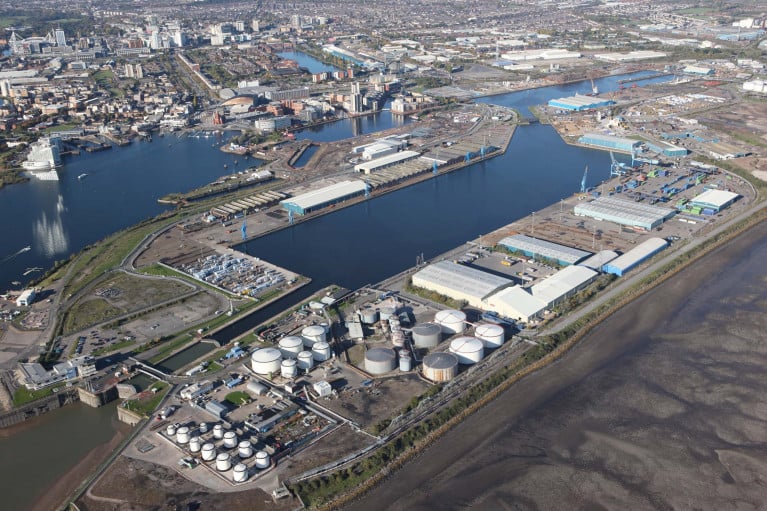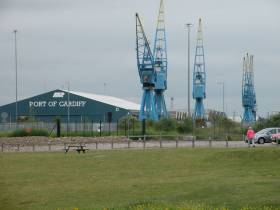Displaying items by tag: Port of Cardiff
The Welsh capital of Cardiff is where its port celebrated the start of a new contract with Valero, a global refiner specialising in the manufacture of transportation fuels and petrochemical products. The development will help power the economy of the city and the wider region.
The new long-term agreement includes occupation of a 12-acre storage and distribution terminal adjacent to Associated British Ports (ABP)’s Roath Dock in Cardiff which will be fed by coastal tankers utilising the port's multimodal and deep-sea connectivity.
As part of the agreement, Valero will be importing predominantly road fuels, including petrol, ultra low sulphur diesel (ULSD) and biofuels, as well as heating fuels, into Cardiff for distribution to the regional market in south Wales.
Valero utilises a coastal shipping service linking its west Wales refinery in Pembroke (Port of Milford Haven) to its network of storage and distribution terminals around the UK and Ireland, with expectations to handle considerable liquid bulk tonnage through Cardiff every year.
ABP’s Port of Cardiff’s strategic location facilitates access to a market of 1.5 million people living in the Cardiff Capital Region, which equals approximately half the population of Wales.
In preparation for the new contract, ABP has made significant investments in enhancing port infrastructure, including investing more than £400,000 in jetty infrastructure upgrades and recently completion of a five year programme to replace both the inner and outer lock gates, representing a £5 million investment to secure marine access for the next 50 years.
Andrew Harston, Regional Director for ABP’s Wales and Short Sea Ports, said: “Valero is a great example of a company that is able to use sea transport for the 100 mile journey from Pembroke to Cardiff.
“ABP has a longstanding relationship with Valero and we look forward to this continuing our collaboration into the future with this new agreement.”
ABP owns and operates 21 ports across the UK, located in close proximity to important domestic industrial clusters, logistics hubs and major conurbations. ABP owns a total of 3,743 ha of freehold land, which includes 960 ha of strategic development land in prime locations across the country.
Over £4 Million To Be Invested in Port of Cardiff
#ports&shipping – Over £4 million is to be invested by ABP South Wales at the Port of Cardiff which annually handles around 1.7 million tonnes of cargo.
The improvements at the port in the Welsh capital are for warehousing and handling equipment so in order to support customers in the steel, forest products, and other general cargo sectors.
In April 2016, ABP South Wales took over the stevedoring of steel and general cargo operations at Cardiff from a third party provider. This investment forms part of a long-term plan to continually improve the infrastructure and equipment the port provides to these customers.
The £4 million investment includes new warehousing, upgrades to existing warehouses, and new port handling equipment.
Upgrading of the warehouses and new equipment will benefit several steel sector customers who have signed long-term agreements, to develop their businesses at the port of Cardiff, in order to benefit from these investments.
Matthew Kennerley, Director of ABP South Wales, said: “We have worked closely with steel sector customers over the past 18 months to best establish how the port can meet the needs of their individual businesses. This substantial investment has resulted in these businesses committing to remaining at the port of Cardiff for many years to come.”
All works are due to be completed by the end of 2017.
The port of Cardiff is owned and operated by ABP South Wales. It supports 2000 jobs and contributes over £120 million to the UK economy every year. It can accommodate vessels up to 35,000 dwt.
































































